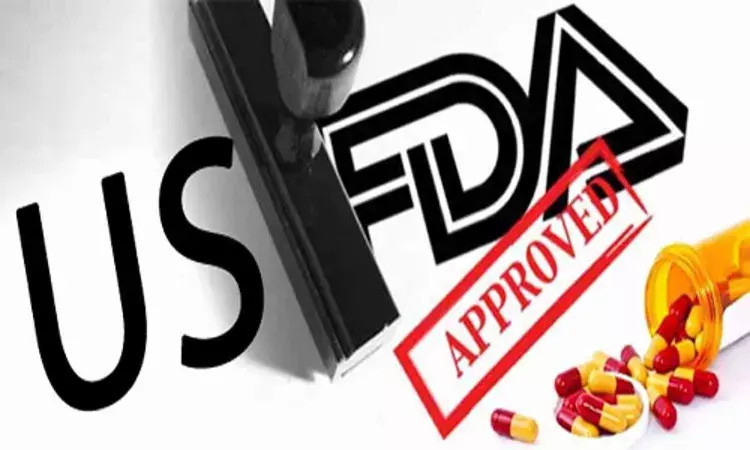- Home
- Medical news & Guidelines
- Anesthesiology
- Cardiology and CTVS
- Critical Care
- Dentistry
- Dermatology
- Diabetes and Endocrinology
- ENT
- Gastroenterology
- Medicine
- Nephrology
- Neurology
- Obstretics-Gynaecology
- Oncology
- Ophthalmology
- Orthopaedics
- Pediatrics-Neonatology
- Psychiatry
- Pulmonology
- Radiology
- Surgery
- Urology
- Laboratory Medicine
- Diet
- Nursing
- Paramedical
- Physiotherapy
- Health news
- Fact Check
- Bone Health Fact Check
- Brain Health Fact Check
- Cancer Related Fact Check
- Child Care Fact Check
- Dental and oral health fact check
- Diabetes and metabolic health fact check
- Diet and Nutrition Fact Check
- Eye and ENT Care Fact Check
- Fitness fact check
- Gut health fact check
- Heart health fact check
- Kidney health fact check
- Medical education fact check
- Men's health fact check
- Respiratory fact check
- Skin and hair care fact check
- Vaccine and Immunization fact check
- Women's health fact check
- AYUSH
- State News
- Andaman and Nicobar Islands
- Andhra Pradesh
- Arunachal Pradesh
- Assam
- Bihar
- Chandigarh
- Chattisgarh
- Dadra and Nagar Haveli
- Daman and Diu
- Delhi
- Goa
- Gujarat
- Haryana
- Himachal Pradesh
- Jammu & Kashmir
- Jharkhand
- Karnataka
- Kerala
- Ladakh
- Lakshadweep
- Madhya Pradesh
- Maharashtra
- Manipur
- Meghalaya
- Mizoram
- Nagaland
- Odisha
- Puducherry
- Punjab
- Rajasthan
- Sikkim
- Tamil Nadu
- Telangana
- Tripura
- Uttar Pradesh
- Uttrakhand
- West Bengal
- Medical Education
- Industry
Inmazeb receives FDA approval for treatment of Ebola virus infection

The U.S. Food and Drug Administration has approved Inmazeb as first treatment of Ebola virus infection in adult and pediatric patients.Inmazeb is mixture of three monoclonal antibodies atoltivimab, maftivimab, and odesivimab-ebgn.
The Food and Drug Administration has granted the approval to Regeneron Pharmaceuticals.
Inmazeb acts by targeting the glycoprotein that is on the surface of Ebola virus. Glycoprotein attaches to the cell receptor and fuses the viral and host cell membranes allowing the virus to enter the cell. The three antibodies that make up Inmazeb can bind to this glycoprotein simultaneously and block attachment and entry of the virus.
Inmazeb was evaluated in 382 adult and pediatric patients with confirmed Zaire ebolavirus infection in one clinical trial (the PALM trial) and as part of an expanded access program conducted in the Democratic Republic of the Congo (DRC) during an Ebola virus outbreak in 2018-2019. The PALM trial was led by the U.S. National Institutes of Health and the DRC's Institut National de Recherche Biomédicale with contributions from several other international organizations and agencies.
"Today's action demonstrates the FDA's ongoing commitment to responding to public health threats—both domestically and abroad—on the basis of science and data," said FDA Commissioner Stephen M. Hahn, M.D. "This approval was made possible because of our steadfast dedication to facilitate the development of safe and effective treatments for infectious diseases as part of our vital public health mission."
Ebola virus, is one of four Ebolavirus species that can cause a potentially fatal human disease. Ebola virus is transmitted through direct contact with blood, body fluids and tissues of infected people or wild animals, as well as with surfaces and materials, such as bedding and clothing, contaminated with these fluids. Individuals who provide care for people with Ebola virus, including health care workers who do not use correct infection control precautions, are at the highest risk for infection.
"Today's approval highlights the importance of international collaboration in the fight against Ebola virus," said John Farley, M.D., MPH, director of the Office of Infectious Diseases in the FDA's Center for Drug Evaluation and Research. "The urgent need for advanced therapies to combat this infectious disease is clear, and today's action is a significant step forward in that effort."
In the PALM trial, the safety and efficacy of Inmazeb was evaluated in a multi-center, open-label, randomized controlled trial, in which 154 patients received Inmazeb (50 mg of each monoclonal antibody) intravenously as a single infusion, and 168 patients received an investigational control. The primary efficacy endpoint was 28-day mortality. The primary analysis population was all patients who were randomized and concurrently eligible to receive either Inmazeb or the investigational control during the same time period of the trial. Of the 154 patients who received Inmazeb, 33.8% died after 28 days, compared to 51% of the 153 patients who received a control. In the expanded access program, an additional 228 patients received Inmazeb.
The most common symptoms experienced while receiving Inmazeb included: fever, chills, tachycardia (fast heart rate), tachypnea (fast breathing), and vomiting; however, these are also common symptoms of Ebola virus infection. Patients who receive Inmazeb should avoid the concurrent administration of a live vaccine due to the treatment's potential to inhibit replication of a live vaccine virus indicated for prevention of Ebola virus infection and possibly reduce the vaccine's efficacy.
Hypersensitivity, including infusion-related events, can occur in patients taking Inmazeb, and treatment should be discontinued in the event of a hypersensitivity reaction.
Inmazeb received an Orphan Drug designation for the treatment of Ebola virus infection. The Orphan Drug designation provides incentives to assist and encourage drug development for rare diseases. Additionally, the agency granted Inmazeb a Breakthrough Therapy designation for the treatment of Zaire ebolavirus infection.
The Food and Drug Administration approved Ervebo, the first vaccine for the prevention of Ebola virus disease, in December 2019, with support from a study conducted in Guinea during the 2014-2016 Ebola outbreak.
Dr Kamal Kant Kohli-MBBS, DTCD- a chest specialist with more than 30 years of practice and a flair for writing clinical articles, Dr Kamal Kant Kohli joined Medical Dialogues as a Chief Editor of Medical News. Besides writing articles, as an editor, he proofreads and verifies all the medical content published on Medical Dialogues including those coming from journals, studies,medical conferences,guidelines etc. Email: drkohli@medicaldialogues.in. Contact no. 011-43720751


